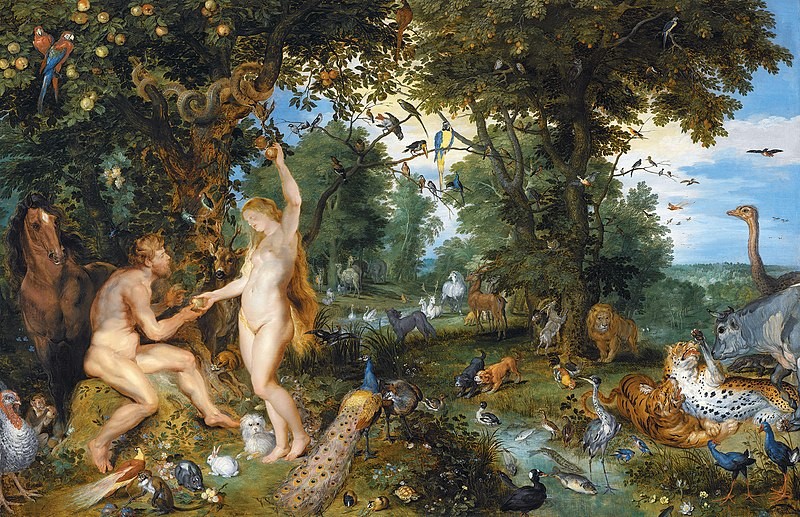
Painting: “The Earthly Paradise With the Fall of Adam and Eve”
Jan Brueghel de Oude and Peter Paul Rubens, Circa 1615
The serpent said to the woman, “You certainly will not die! 5 For God knows that on the day you eat from it your eyes will be opened, and you will become like God, knowing good and evil.” Genesis 3.4 (NASB)
The previous post regarding how “all of us are wrong” raised the epistemological problem “how can we as finite, limited, and fallible creatures know?” In particular, we are not only wrong because we are limited, but we are also corrupt because of sin. We fail to realize that the fall into sin was not only a moral failure, disobeying God, it was also an ontological and epistemological rebellion. The serpent promised that eating the fruit would change who we are, our ontology, since we would become like God, and what we can know, our epistemology.
What does “knowing” mean? What must be true for us to know? There must be something to know and someone capable of knowing. For the Christian, this is straightforward, God created a cosmos ordered to be able to be known, made us in his image that we would not only be able to know, but also be able to act: to rule over and subdue the earth, the be fruitful and multiply. We are not a meaningless thing, stuff, but we are people made to know, love, act, sacrifice, work, enjoy.
Then God said, “Let Us make mankind in Our image, according to Our likeness; and let them rule over the fish of the sea and over the birds of the sky and over the livestock and over all the earth, and over every crawling thing that crawls on the earth.” 27 So God created man in His own image, in the image of God He created him; male and female He created them. 28 God blessed them; and God said to them, “Be fruitful and multiply, and fill the earth, and subdue it; and rule over the fish of the sea and over the birds of the sky and over every living thing that moves on the earth.” Gen 1:26 (NASB)
God speaks the cosmos into order and meaning. God speaks to himself, “Let Us…”, showing language as social, a means of communicating between persons and not meaning itself. He then created and spoke to us, calling us to serve Him and be fruitful and rule.
Then the LORD God said, “It is not good for the man to be alone; I will make him a helper suitable for him.” 19 Out of the ground the LORD God formed every beast of the field and every bird of the sky, and brought them to the man to see what he would call them; and whatever the man called a living creature, that was its name. 20 The man gave names to all the cattle, and to the birds of the sky, and to every beast of the field, but for Adam there was not found a helper suitable for him. 21 So the LORD God caused a deep sleep to fall upon the man, and he slept; then He took one of his ribs and closed up the flesh at that place. 22 The LORD God fashioned into a woman the rib which He had taken from the man, and brought her to the man. 23 The man said,“This is now bone of my bones, And flesh of my flesh; She shall be called Woman, Because she was taken out of Man.” 24 For this reason a man shall leave his father and his mother, and be joined to his wife; and they shall become one flesh. 25 And the man and his wife were both naked and were not ashamed. Genesis 2:18-25
God charges us with the duty to create language to know His world, to name the animals, to write poetry, to teach our children, to express beauty, caring, thankfulness, to develop scientific formulas and biological understanding and chemical symbols to communicate our knowledge and refine our understanding.
For the Christian, God created a world filled with things to know and gave us the capacity through our senses and thoughts to understand and know. Our knowing is based, though, on God’s revelation. Even in the Garden, nature was not the guide before sin entered the world. Rather, God had to tell us not to eat of the tree of knowledge of good and evil. It looked naturally good.
Our fall made our knowledge not only limited but we are also corrupt. Our corruptness does not mean that we do not know, but that we think meaning is found in the world and in us (Ro 1:18-23). But God in mercy determined to redeem us and bring us back to know Him and truth. He acted in history, spoke to us the through the prophets, inspired, guided, and ensured that His word written by people would be clear and authoritative and translatable. To guide us and keep us from error, He worked through the Spirit to guide us as a community into the correct understanding that is still incomplete and limited. Even with this revelation and community, we individually need the Spirit’s guidance to know truth. Every new generation faces new challenges and is confronted by God providentially to return to His word and gain added understanding. We are becoming epistemologically self-aware wheat in contrast to the tares.
Most of all, of course, we know Jesus, the Word, the way the truth and the life. Our knowing is most certain and sure when we know and hold onto God’s promises made real in Christ. For disciples, God’s calling us His own restores our ontological status as God’s children through adoption and redeems our epistemic condition through the Word. This is embedded in the Great Commission.
For us as people though, knowing is a belief, not a godlike certainty. The closest we get to a godlike certainty is our being in Christ.
Knowing in philosophy has a deep and troubled history of challenge. It is one of many of the great unanswered and unanswerable questions. As fallible and limited people, the best we have is our belief that we know. For philosophers, the formulation is that human knowledge is justified true belief (JTB). (https://plato.stanford.edu/entries/knowledge-analysis/ ) Christian philosophers have modified this to replace justified with warranted true belief WTB). (https://en.wikipedia.org/wiki/Reformed_epistemology)
To know, what we believe needs to be supported, that is warranted, and true. Our knowing something is just our belief that, that something is true.
This has huge implications for our Christian faith. Believing in Jesus as my savior is not a shot in the dark, a hoped-for outcome, but my understanding that he is truly my savior. My belief is not in my choice but in the reality of his promise. My faith in Christ is not what I choose, but what I know to be true. Doubt is not me choosing not to trust but me beginning not to think that the promise of Jesus is true. To be redeemed, I need not only to understand that the Christian claims are true, but that Jesus is my Lord because the promises are true for me. This does require me to believe, that is know, that Jesus is my savior.
For the one who does not know that God made us and the world, knowing is inescapable and fundamentally problematic. There is no basis in a secular, material philosophy to think there is anything to know. Even if there was, there is no reason to think that I am able to know it. My belief that I know love, meaning, and reality is an unavoidable consequence that I am wrong about secular materialism and that I am a lost child of God who’s only hope is to come home.
Want to know more? Reach out to us at discipledilemma@gmail.com or
Visit The Disciple Dilemma on
Website: www.discipledilemma.com
Facebook: Disciple Dilemma (facebook.com)
LinkedIn: https://www.linkedin.com/in/dennisallenlink/
Instagram: Thediscipledilemma
Video:
YouTube: The Disciple Dilemma YouTube Channel
Rumble: The Disciple Dilemma (rumble.com)
Audio podcasts
Spotify: The Disciple Dilemma Podcast
Podcast Index: The Disciple Dilemma Podcast | Podcastindex.org
Stitcher: The Disciple Dilemma Podcast on Stitcher
Amazon: The Disciple Dilemma Podcast on Amazon Music
Apple: The Disciple Dilemma Podcast on Apple Podcasts
IHeart Radio: ♫ The Disciple Dilemma Podcast | (iheart.com)
